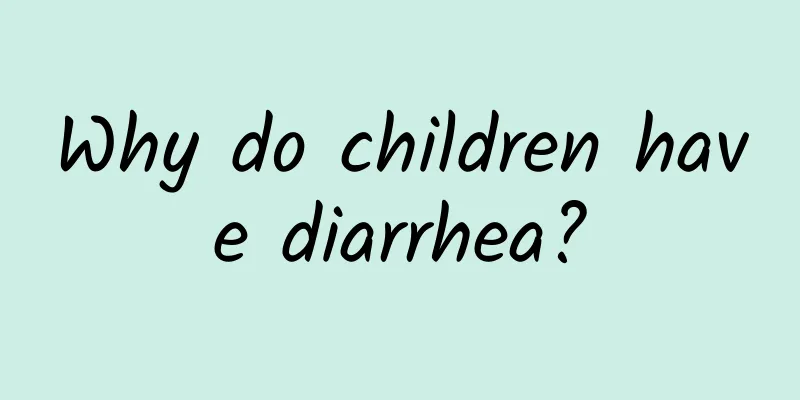What causes jaundice in babies?

|
Infant jaundice is a yellowing of the skin and whites of the eyes caused by high levels of bilirubin in the newborn baby. This problem is very common in newborns and is usually caused by the fact that the liver function is not fully developed. 1. Physiological jaundice: Most newborns will develop jaundice 2 to 3 days after birth. This condition is called physiological jaundice. It is caused by the accelerated destruction of red blood cells in newborns, while the liver's ability to process bilirubin is not strong enough. This type of jaundice usually disappears on its own within 1 to 2 weeks and will not cause long-term effects on the baby. 2. Breast milk jaundice: Some babies will develop jaundice due to breastfeeding within one or two weeks after birth. The mechanism of this jaundice is not yet fully understood, but it may be related to certain components in breast milk that affect the baby's liver's ability to process bilirubin. Breast milk jaundice usually does not require stopping breastfeeding, but it does require regular monitoring. 3. Pathological jaundice: If jaundice appears too early, is too severe, or lasts too long, it may be pathological jaundice. Common causes include hemolytic diseases, infections, liver diseases, etc. Pathological jaundice requires timely medical treatment, blood tests and other means to identify the cause, and appropriate treatment. 4. Jaundice caused by blood type incompatibility: Blood type incompatibility between mother and baby may also cause neonatal jaundice. For example, if the mother is type O blood and the baby is type A or B blood, the antibodies in the mother's body may attack the baby's red blood cells, causing jaundice. This type of jaundice usually requires phototherapy or exchange transfusion to reduce bilirubin levels. 5. Jaundice in premature infants: Premature infants have less developed liver function than full-term infants and are less able to process bilirubin, making them more susceptible to jaundice. Jaundice in premature infants requires special attention and may require longer phototherapy and more frequent monitoring. How to deal with jaundice in babies? 1. Phototherapy: This is the most common treatment, which uses blue light to help break down bilirubin in the skin, making it easier to excrete from the body. Phototherapy is usually performed in a hospital, but sometimes it can also be done at home using a portable phototherapy device. 2. Increase feeding frequency: Frequent feeding can help babies excrete bilirubin faster. Breastfed babies can increase the number of feedings, and bottle-fed babies can increase the amount of formula milk appropriately. 3. Regular monitoring: Regardless of the type of jaundice, the baby's bilirubin level needs to be monitored regularly. The doctor will decide whether further treatment is needed based on the monitoring results. 4. Keep your baby warm: Newborns have poor ability to regulate body temperature. Maintaining a suitable ambient temperature is beneficial to the baby's overall health and also helps the liver function normally. 5. Seek medical attention promptly: If your baby's jaundice is severe or lasts for too long, you should seek medical attention promptly. The doctor will determine the type and severity of jaundice through blood tests and other means, and develop a corresponding treatment plan. Although jaundice in babies is common, it can be managed with simple measures in most cases. Parents can effectively deal with this problem and ensure their baby's healthy growth as long as they remain vigilant and take appropriate measures in time. |
<<: Fruits that are the nemesis of hand, foot and mouth disease
>>: How is jaundice hepatitis caused? Is it serious?
Recommend
Early detection of pneumonia in children
What are the early tests for pneumonia in childre...
Which department should I go to for ADHD examination?
Children with ADHD usually need to be seen by a p...
What causes jaundice in babies?
Infant jaundice is mostly caused by abnormal bili...
What is DMD?
DMD, usually referred to as Duchenne muscular dys...
Which hospital is best for treating acute laryngitis in children?
In life, there are indeed many people who are tro...
What are the types of ADHD?
ADHD, also known as attention deficit hyperactivi...
How to treat jaundice and anemia in children?
How to treat jaundice and anemia in children? Chi...
What should I do if my baby keeps coughing? How should I treat my baby's coughing?
When your baby keeps coughing, you must go to the...
What are the symptoms of hand, foot and mouth disease?
What are the symptoms of hand, foot and mouth dis...
How to take care of children with tics? What are the symptoms and manifestations of tics?
In most cases of tics, the physical condition of ...
What is the reason for the child's cough and how to treat it
If a child's cough does not go away, it may b...
Why does my child not cough during the day but cough at night? Is it effective to let the child drink warm water to relieve cough?
If the child is normal during the day but coughs ...
What to eat for children with cough after upper respiratory tract infection
Children with coughs caused by upper respiratory ...
What are the preventive measures for hand, foot and mouth disease?
What are the prevention and treatment measures fo...
Introduction to nursing tips for breast milk diarrhea
The occurrence of breast milk diarrhea leaves man...









